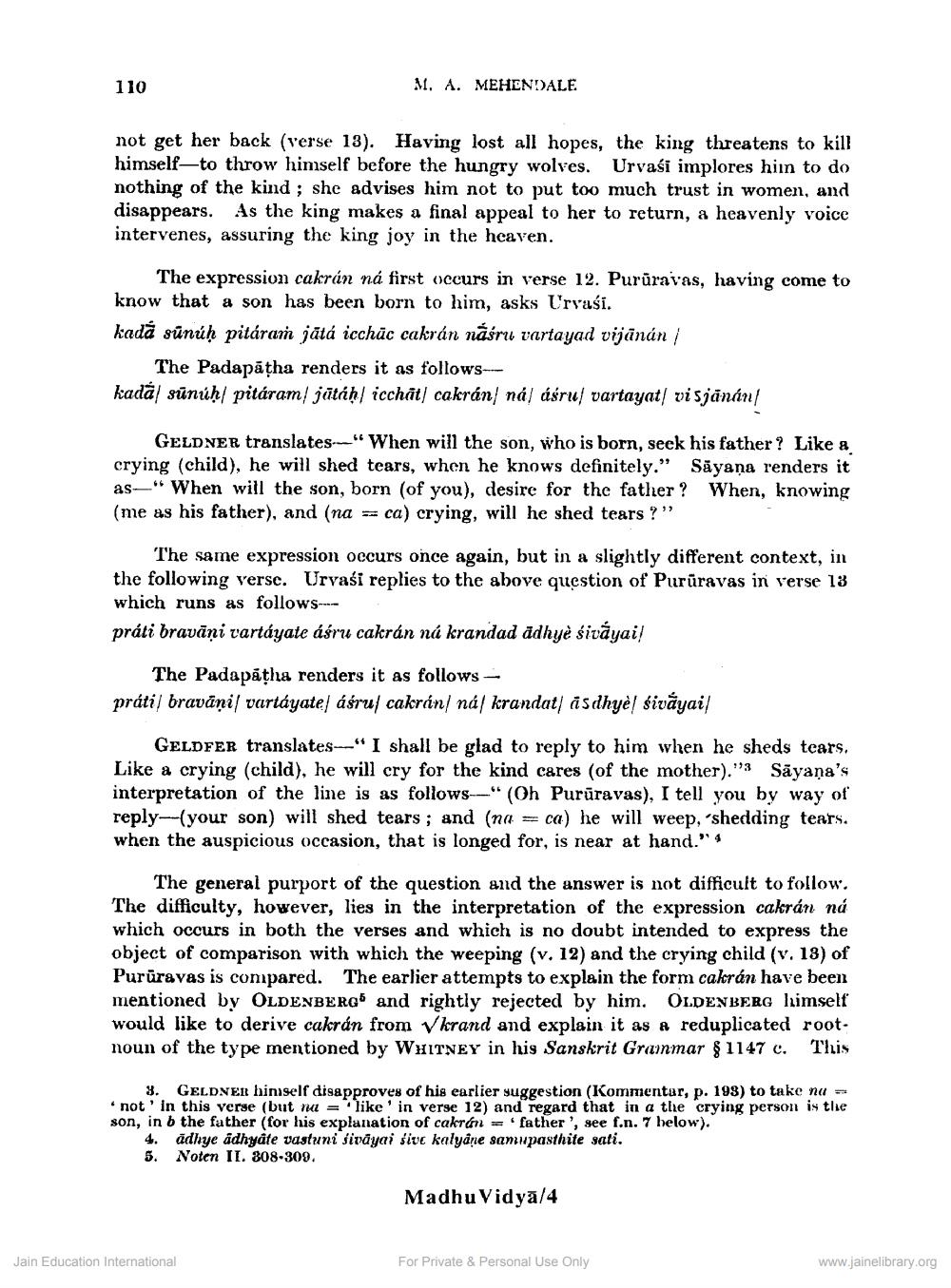________________
110
M. A. MEHENDALE
not get her back (verse 13). Having lost all hopes, the king threatens to kill himself—to throw himself before the hungry wolves. Urvasi implores hiin to do nothing of the kind ; she advises him not to put too much trust in women, and disappears. As the king makes a final appeal to her to return, a heavenly voice intervenes, assuring the king joy in the heaven.
The expression cakrán ná first occurs in verse 12. Purūravas, having come to know that a son has been born to him, asks Urvasi. kadá sūnúḥ pitárar jätá icchâc cakrán nåśru vartayad vijānán /
The Padapātha renders it as follows--- kada/ sūnúh/ pitáram, jätáh/ icchât) cakrán/ nál áśru/ vartayat/ vi sjänan!
GELDNER translates---"When will the son, who is born, seek his father? Like & crying (child), he will shed tears, when he knows definitely." Sāyana renders it as—" When will the son, born (of you), desire for the father? When, knowing (me as his father), and (na = ca) crying, will he shed tears?"
The same expression occurs once again, but in a slightly different context, in the following verse. Urvasi replies to the above question of Purüravas in verse 13 which runs as follows-- práti bravāni vartayate áśru cakrán ná krandad ädhyè siváyai/
The Padapatha renders it as follows - práti/ bravāni/ vartáyate) áśru cakrán/ ná/ krandat/ as dhyè/ siváyai/
GELDFER translates--" I shall be glad to reply to him when he sheds tears. Like a crying (child), he will cry for the kind cares (of the mother).''3 Sāyana's interpretation of the line is as follows--" (Oh Purūravas), I tell you by way of reply-(your son) will shed tears; and (na = ca) he will weep, 'shedding tears. when the auspicious occasion, that is longed for, is near at hand." 4
The general purport of the question and the answer is not difficult to follow. The difficulty, however, lies in the interpretation of the expression cakrán ná which occurs in both the verses and which is no doubt intended to express the object of comparison with which the weeping (v. 12) and the crying child (v. 13) of Purūravas is compared. The earlier attempts to explain the form cakrán have been mentioned by OLDENBERGS and rightly rejected by him. OLDENBERG himself would like to derive cakrán from V krand and explain it as a reduplicated rootnoun of the type mentioned by WHITNEY in his Sanskrit Granmar 8 1147 c. This
8. GELDNER hinıself disapproves of his earlier suggestion (Kommentar, p. 193) to take nu = not' in this verse (but mui = like' in verse 12) and regard that in a the crying person is the son, in b the father (for his explanation of cakram = father', see f.n.7 helow).
4. ädhye adhyâte vastuni fivāyai sive kalyane samupasthite sati. 5. Noten II. 808-309.
Madhu Vidya/4
Jain Education International
For Private & Personal Use Only
www.jainelibrary.org




